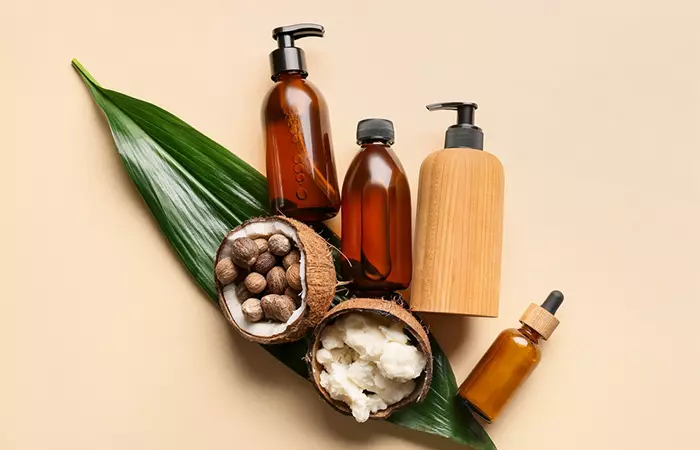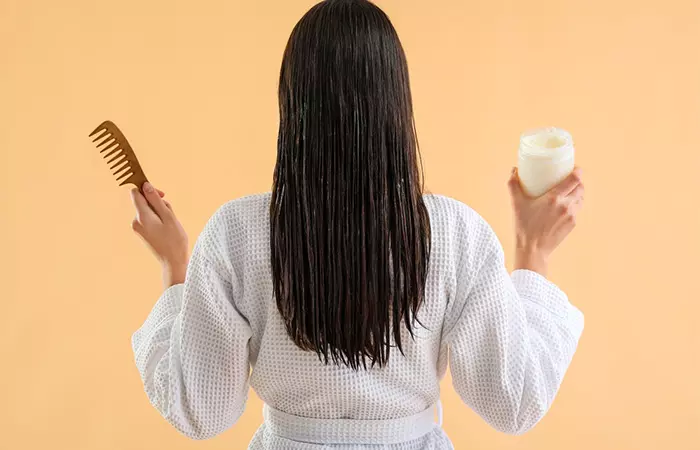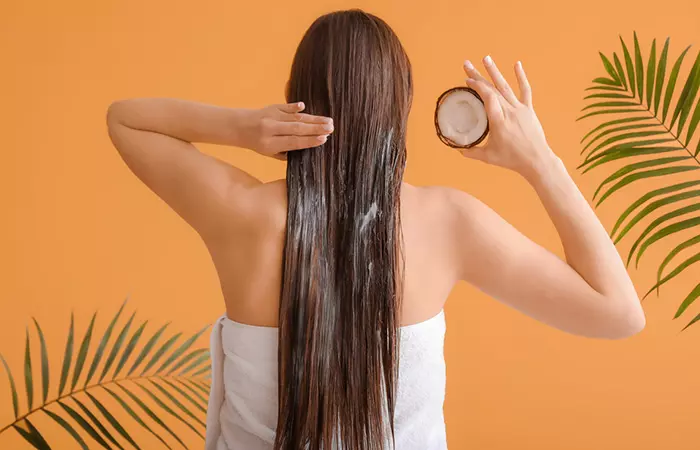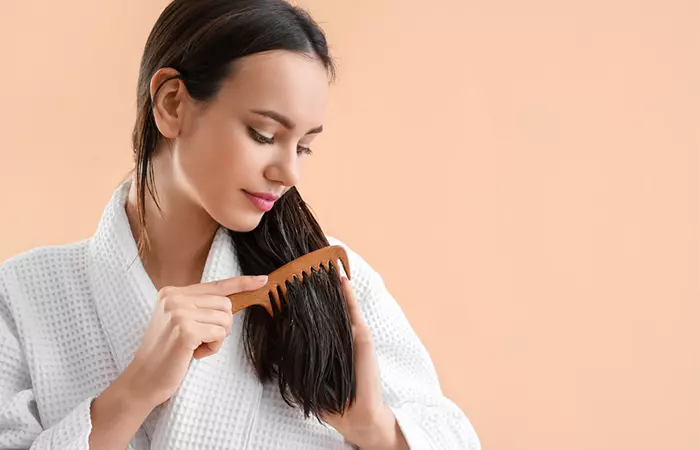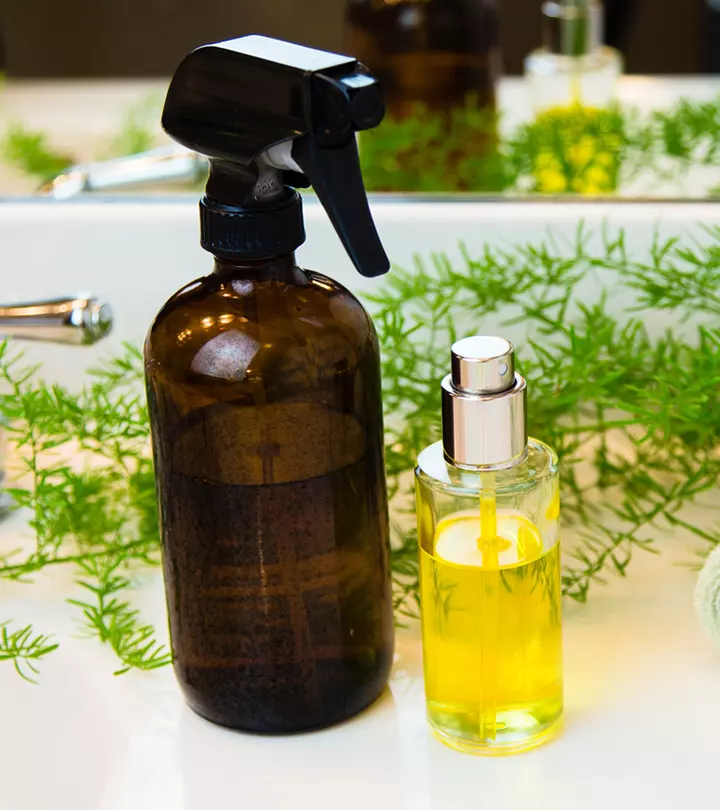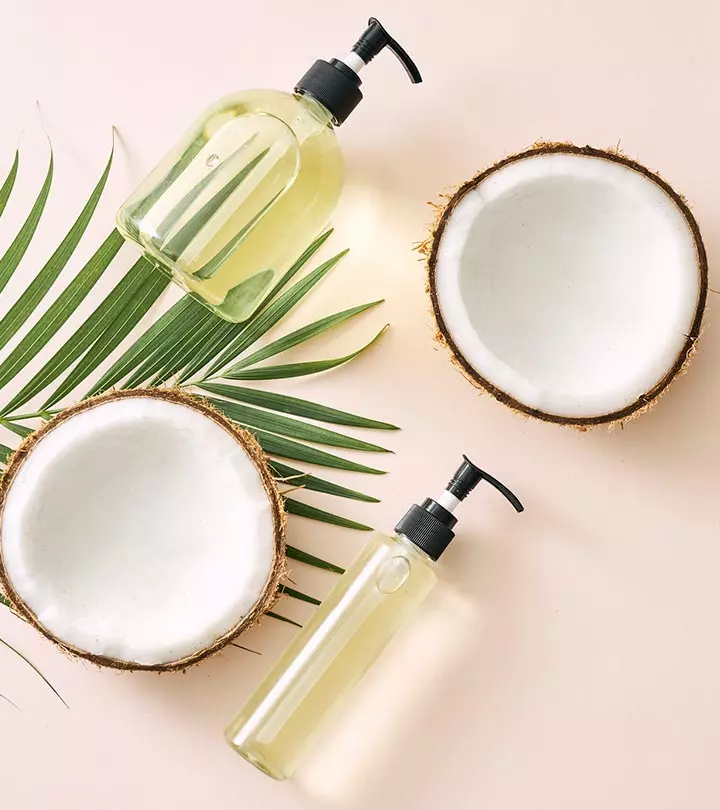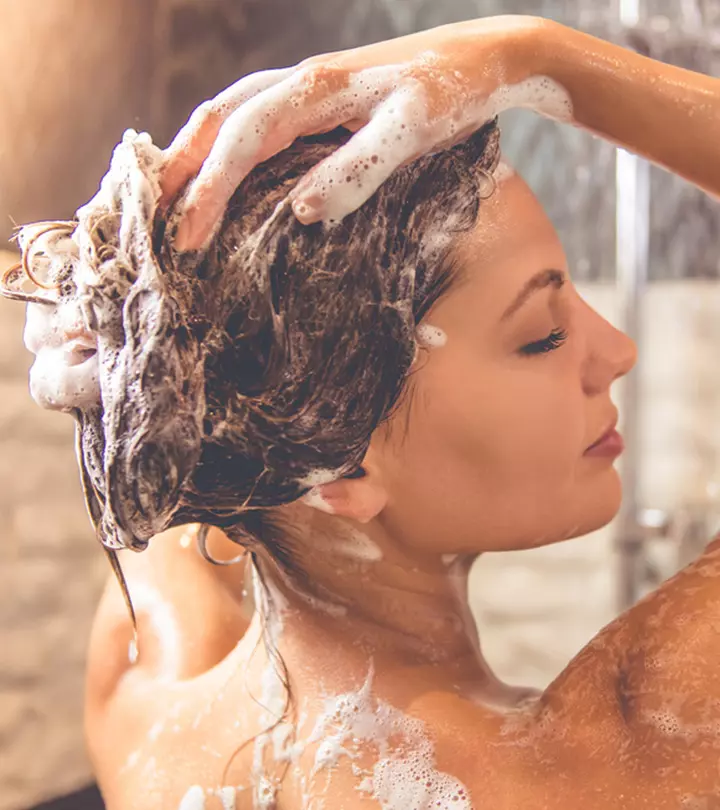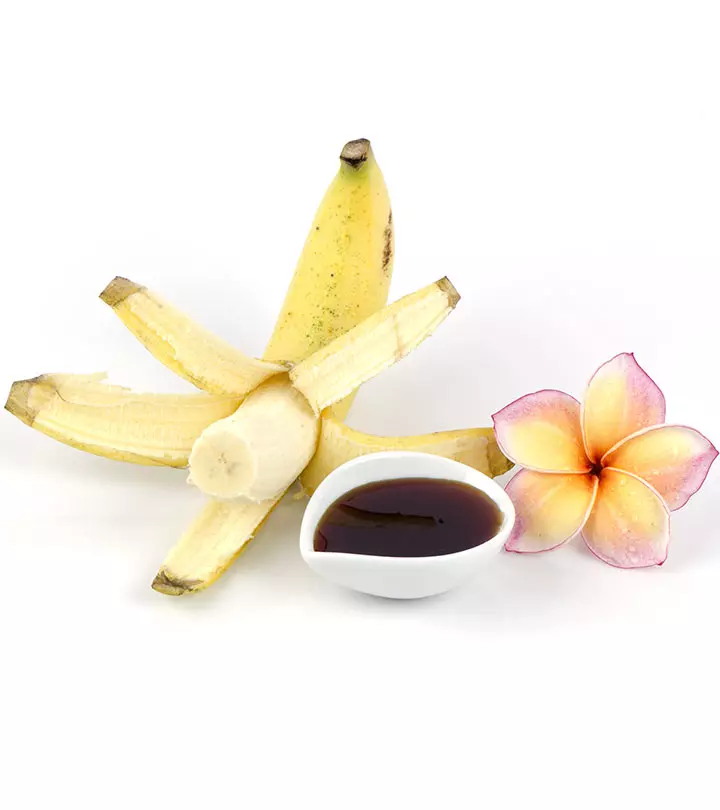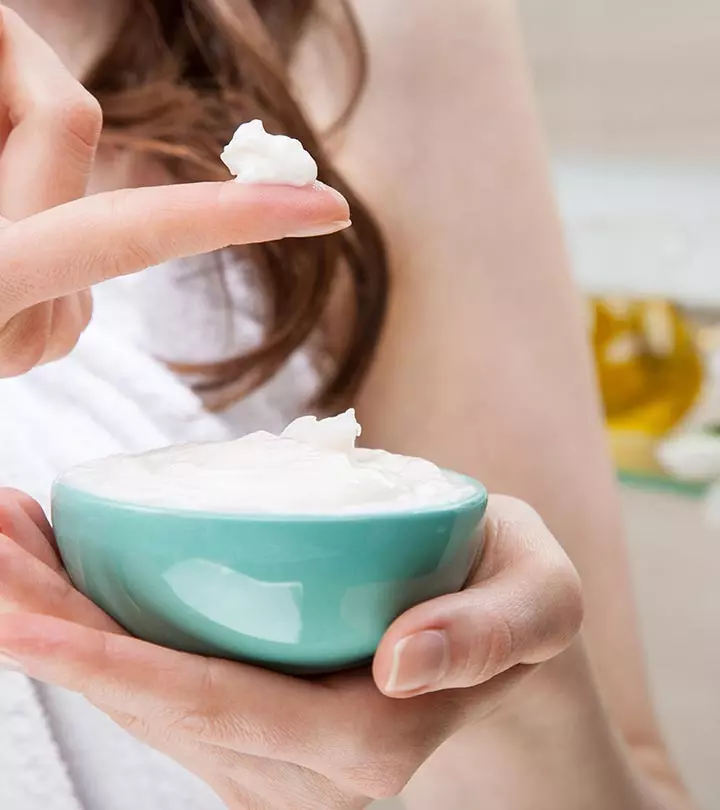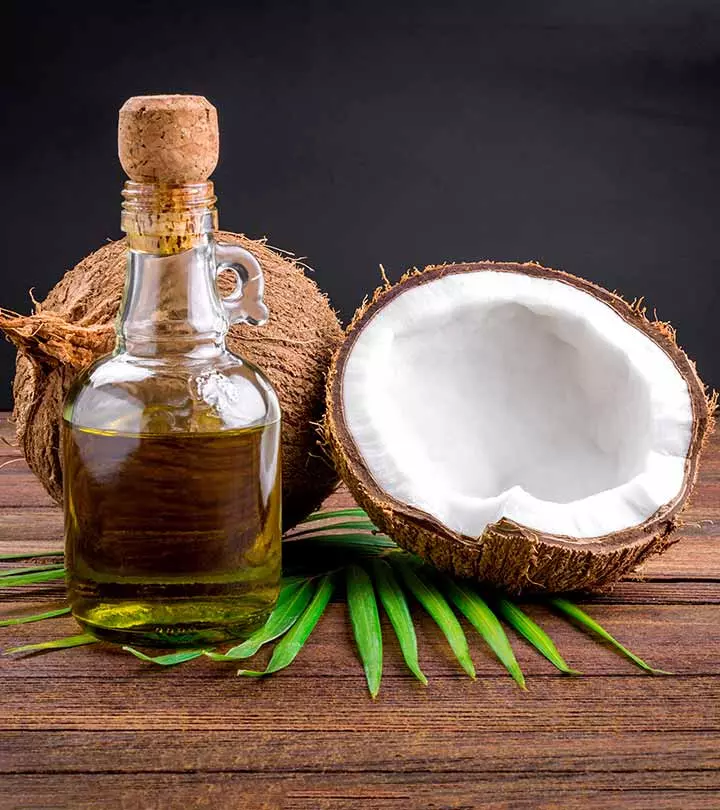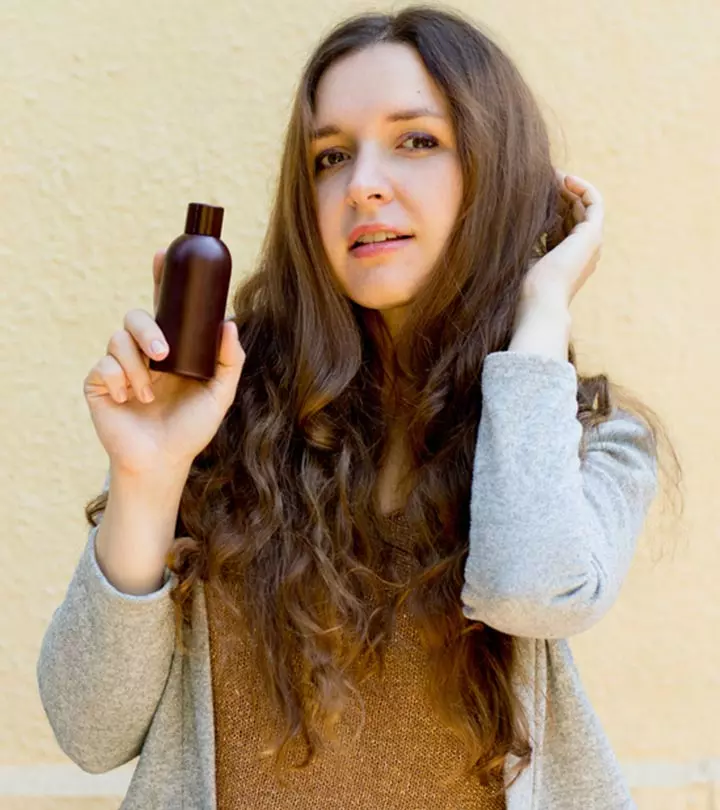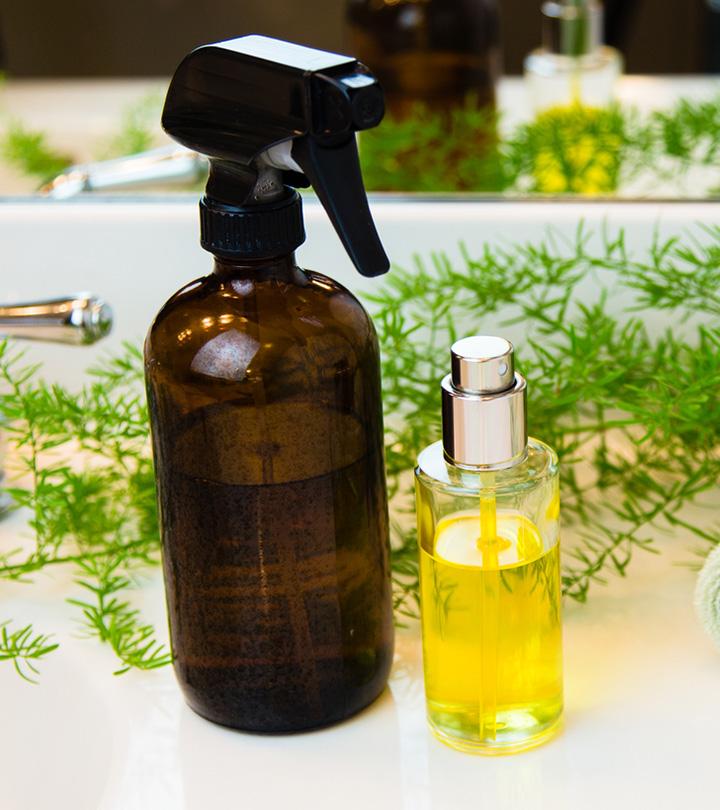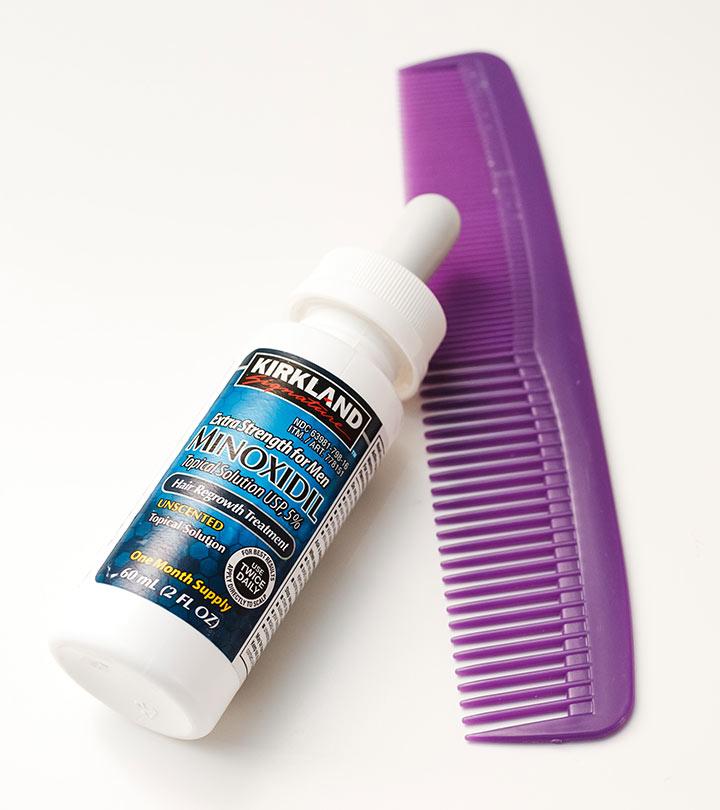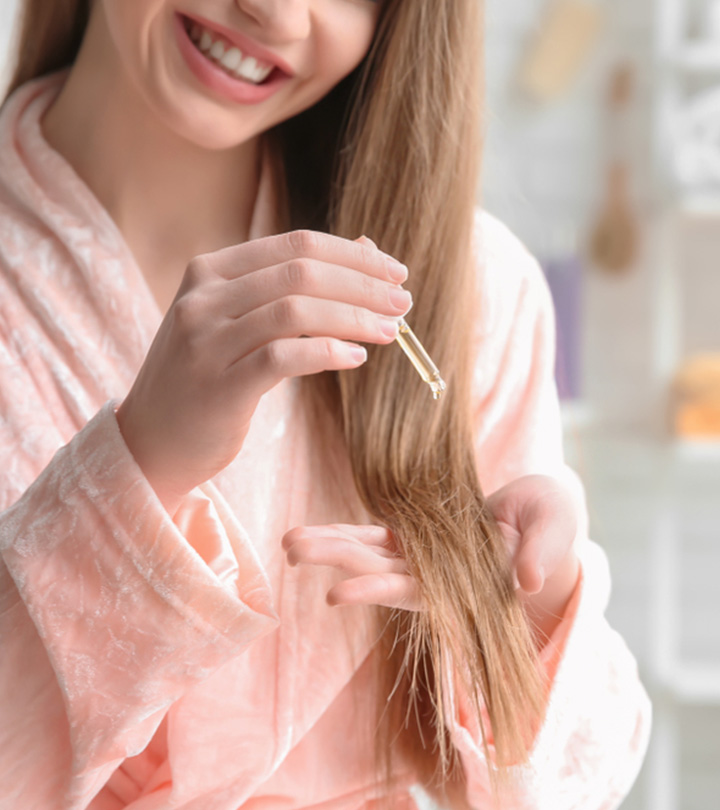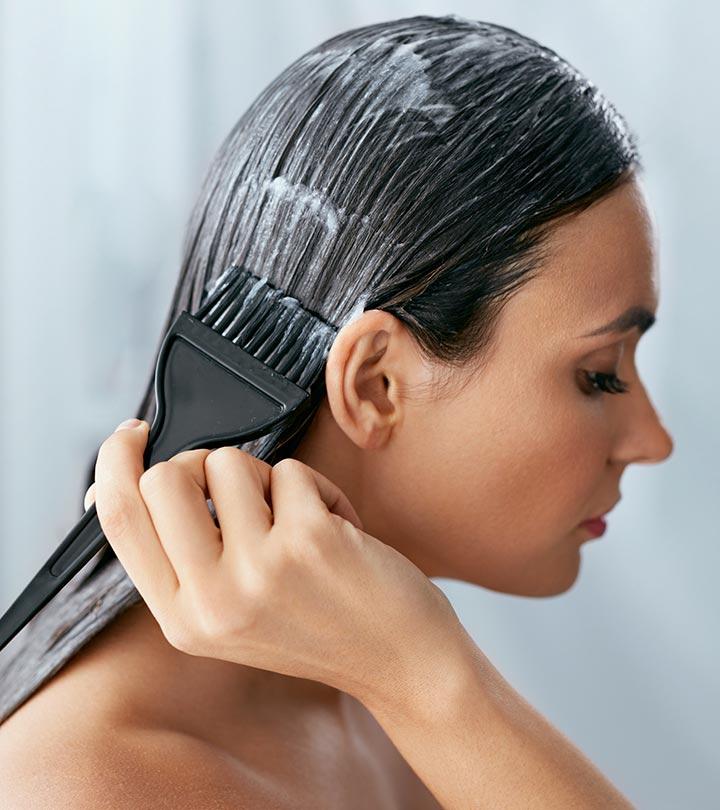How To Make Coconut Oil Conditioner At Home
Silky soft tresses are now within your grasp just by blending a few natural oils.

Image: ShutterStock
You can never forget the hard time that frizzy hair gives. Here is a tip! Prepare and apply a DIY coconut oil conditioner at home and see the results for yourself. It shows promising benefits as an effective solution for most of your hair and scalp problems.
Coconut oil has anti-inflammatory and anti-fungal properties that help reduce dandruff and prevent hair breakage and split ends (1), (2), (3). Also, this oil helps hold the hair strands together, reducing the risk of flyaways (stray hair) and frizzy hair. In this article, we will take you through the process of making a DIY coconut oil conditioner and easy ways to use it. Take a look!
In This Article
Why Make Your Own Coconut Oil Hair Conditioner?
This is because coconut oil can easily penetrate the hair cuticle and reach the cortex (inner layer) to moisturize and nourish the hair from within (4). Commercially available coconut oil conditioners claim to offer similar benefits. However, one look at the ingredient list will tell you that it is better to go the DIY route.
Most commercial conditioners contain artificial fragrances, preservatives, silicones, and parabens. These synthetic chemicals can damage your hair in the long run and may also cause allergic reactions.
A DIY coconut oil hair conditioner is one way to avoid these harmful chemicals. Moreover, it is organic and more affordable than store-bought conditioners.
 Quick Tip
Quick TipOpt for unprocessed, cold-pressed, virgin coconut oil as it has a higher concentration of beneficial compounds.
Here is a simple and effective recipe for you if you are interested in switching to natural conditioners.
DIY Coconut Oil Conditioner Recipe
You Will Need
- 2 tablespoons of coconut oil
- 1 tablespoon of shea butter
- 1 teaspoon of jojoba oil
- A few drops of essential oil
- Hand blender
- Airtight container
Procedure
- Melt the shea butter in a microwave or over a double boiler.
- Add the coconut oil, jojoba oil, and essential oil to the melted shea butter and mix.
- Store in the fridge until the mixture solidifies.
- Whip the mixture using a hand blender for a smooth and creamy consistency.
- Transfer the homemade coconut oil conditioner to a clean, airtight container for storage.
- Store it in the fridge to prevent it from melting.
Shea butter and jojoba oil are emollients. Although there is no scientific proof of their hair benefits, these two ingredients are common in hair care products. Their emollient and moisturizing properties can help retain moisture in your hair and make for a great homemade conditioner for hair.
Do not worry if you cannot find the required ingredients for this recipe. You can customize this coconut oil conditioner as per your needs.
Ingredient Substitutes
- Use almond or vitamin E oils instead of jojoba oil.
- Use cocoa butter or mango butter instead of shea butter.
- You can skip the essential oil or add multiple essential oils.
 Quick Tip
Quick TipApply coconut oil on damp hair if you want to lock the moisture in. Apply it on dry hair if you want it to protect it from damage.
You now know how to make a coconut oil conditioner. Read on to know the many ways you can use it to combat frizzy and dense hair.
3 Ways To Use The Homemade Coconut Oil Conditioner
The true secret to the success of this coconut conditioner lies in its versatility. Be it a pre-poo hair mask, a spa-day with a deep conditioner, or just smoothing the frizz a little before stepping out – this DIY coconut oil conditioner is what you need.
1. As A Pre-Poo Hair Mask
A pre-poo hair mask is an excellent way to ensure that your hair does not dry out after shampooing. It also makes detangling easier. Here is what you need to do:
- Massage a small quantity of the coconut oil hair conditioner onto your hair and scalp. Start from the roots and work your way to the ends.
- Leave the coconut oil mask on for at least half an hour before shampooing. You can also leave it overnight.
- Wash your hair with a mild shampoo.
Amy, a blogger, used coconut oil as a pre-poo treatment and was amazed with the results. She wrote, “My hair is back to how it was before I colored it. It is super soft and shiny! My little one kept putting her hands through my hair and saying how soft it was (i).”
2. As A Deep Conditioner
A deep conditioner repairs hair damage, smoothens the strands, and nourishes them to health. Here is how you can use the above DIY coconut oil as a deep conditioner:
- Apply a small quantity of coconut oil conditioner to your hair.
- Spread it across the length of your hair.
- Wear a heat/shower cap or wrap a warm towel around your head and let the hair soak up the oil.
- Leave the conditioner on for half an hour.
- Wash it off using a mild shampoo.
3. As A Leave-In Conditioner
A leave-in conditioner keeps frizz in check and protects your hair from environmental damage. Follow these steps to use the homemade coconut oil as a conditioner:
- Rub a pea-sized amount of the coconut oil hair conditioner between your palms and massage your hair with it. Avoid the roots.
- Leave it on for at least 30 minutes before rinsing with a mild shampoo.
- Adjust the quantity as per your hair length.
Infographic: How To Make Coconut Oil Conditioner At Home
Knowing how to make an organic conditioner at home can be one of the most useful and helpful things. You no longer have to buy expensive organic products, and you can prevent any hair damage that may occur when using commercial conditioners containing harsh ingredients. Also, you can choose the ingredients that better suit your hair type. We would like to highlight a homemade coconut oil conditioner recipe that you should know about. Check out the infographic below to learn the easy way to make one at home.

Illustration: StyleCraze Design Team
If you are looking for natural alternatives to your store-bought hair conditioner, you can make your coconut oil conditioner at home. Commercial conditioners may contain harsh chemicals that lead to hair damage. Using your DIY coconut oil conditioner will keep your hair moisturized, reduce dandruff, and prevent further damage. With the right ingredients and the recipe provided in this article, you can make your own coconut conditioner easily. You can use this conditioner as a pre-poo hair mask and deep or leave-in conditioner according to your hair’s beauty needs.
Frequently Asked Questions
How do you use coconut oil as a daily conditioner?
You may use plain coconut oil as a leave-in conditioner 2-3 times per week. Using oil on your hair every day is not recommended as it can lead to scalp buildup, cause scalp irritation, and weigh your hair down.
Does coconut oil ruin your hair?
No. Generally, coconut oil is safe and nourishing for your hair and scalp. However, using it excessively can make your hair greasy and weigh it down.
How long does homemade hair conditioner last?
Homemade conditioners last for 7-10 days when stored in the refrigerator. It is advised not to use it after that period even if it seems to not have spoiled.
Key Takeaways
- Damaged hair is more prone to tangling. Hair damage may be caused by excessive styling, harsh weather, chemical treatments, negligent hair care, and over-washing.
- Trying to brush out your knots and tangles in an aggressive manner is highly ill-advised as it may cause breakage, matting, or trauma to the scalp.
- It is ideal to detangle your hair in the shower, after shampooing, and with some conditioner in the hair, to make the process smoother.
- Use a wooden wide-tooth comb to ensure minimal breakage and damage during the detangling process.
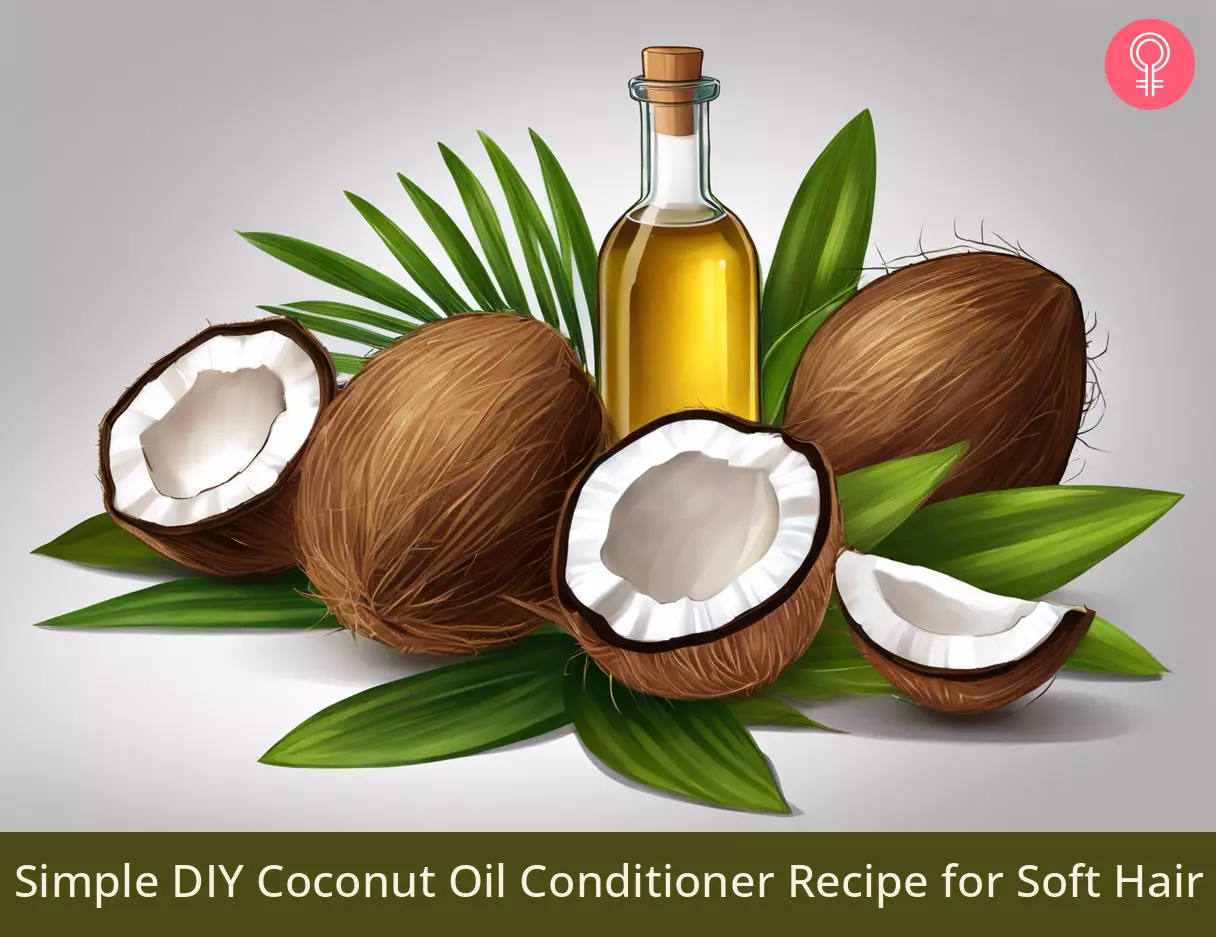
Image: Stable Diffusion/StyleCraze Design Team
Read full bio of Madison Dufour
Read full bio of Anjali Sayee
Read full bio of Monomita Chakraborty






